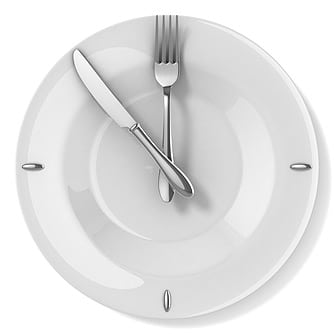Previous studies with animal models suggest a relationship between the timing of feeding and weight regulation. Frank Scheer, from Brigham and Women’s Hospital (Massachusetts, USA), and colleagues evaluate the role of food timing in weight-loss effectiveness in a group of 420 individuals who followed a 20-week weight-loss treatment. The participants were divided into two groups: early-eaters and late-eaters, according to the self-selected timing of the main meal, which in this Mediterranean population was lunch. During this meal, 40% of the total daily calories are consumed. Early-eaters ate lunch anytime before 3 p.m. and late-eaters, after 3 p.m. They found that late-eaters lost significantly less weight than early-eaters, and displayed a much slower rate of weight-loss. Late-eaters also had a lower estimated insulin sensitivity, a risk factor for diabetes. Researchers found that timing of the other (smaller) meals did not play a role in the success of weight loss. However, the late eaters—who lost less weight—also consumed fewer calories during breakfast and were more likely to skip breakfast altogether. Late-eaters also had a lower estimated insulin sensitivity, a risk factor for diabetes. Writing that: “Eating late may influence the success of weight-loss therapy,” the study authors submit that: “Novel therapeutic strategies should incorporate not only the caloric intake and macronutrient distribution—as is classically done—but also the timing of food.”




